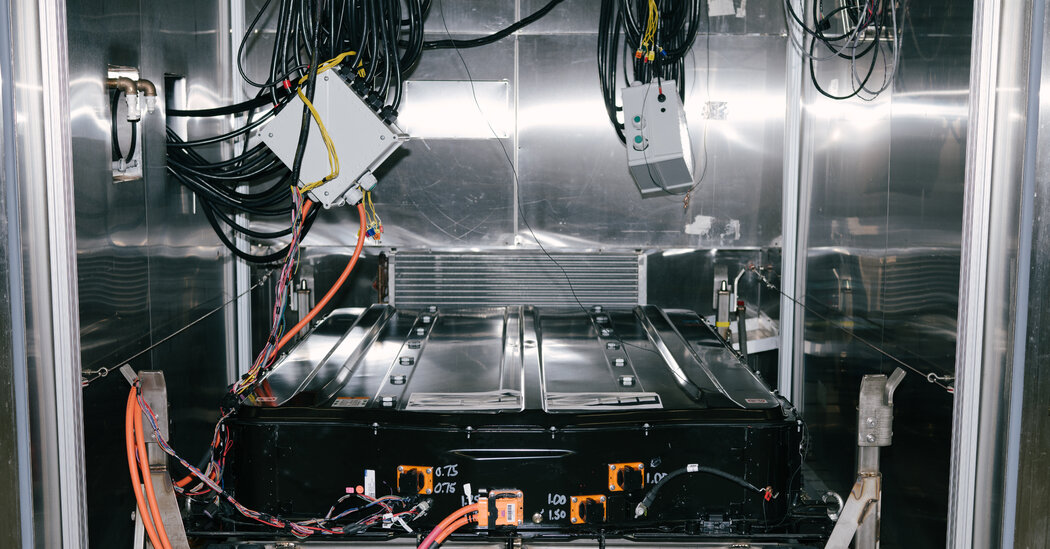The U.S. Department of Energy said Monday it would lend $2.5 billion to General Motors and LG Energy Solution to build battery plants, furthering the Biden administration’s plan to promote electric vehicles and reduce reliance on China for critical components. to decrease.
GM and LG Energy, a South Korean battery manufacturer, are partners in Ultium, a joint venture that will use the money to manufacture batteries in Ohio, Tennessee and Michigan. The loan, which is contingent on meeting certain requirements from the companies, is the first in more than a decade through a government program that raised $465 million to help Tesla produce its first sedan, the Model S.
The US government has played an important and often misunderstood role in promoting electric vehicle technology. Numerous universities and entrepreneurs have received funding from the Energy Department’s Advanced Research Projects Agency to develop batteries that can charge faster and hold more energy per pound than previous versions. Some of these companies, such as Sila Nanotechnologies in Alameda, California, and Solid Power in Louisville, Colorado, are moving closer to producing advanced batteries for major automakers.
GM and LG’s new Ultium plants are expected to create more than 5,000 permanent jobs, the Department of Energy said. GM has said the Ohio plant, which is located in Lordstown, will begin production of battery packs this year.
Domestic battery production can also help reduce the cost of electric vehicles. Batteries are heavy and building them near car factories generally saves money.
The investments in Ohio and Michigan will help reassure union leaders and state officials that they will not be left out of the electric vehicle boom. Much of the company’s investment in new electric car and battery plants goes to southern states such as Tennessee, Alabama and Georgia.
“We must seize the opportunity to make advanced batteries — the heart of this growing industry — right at home,” Jennifer M. Granholm, the energy secretary and former governor of Michigan, said in a statement.
Separately, Congress last year, in a rare display of ambiguity, passed an infrastructure bill that the Biden administration hopes will lay the foundation for millions of electric cars and establish a domestic supply chain for battery production.
The government plans to spend $7.5 billion to build chargers for electric vehicles along major highways, and more than $7 billion to supply lithium and other materials used to make batteries. China dominates lithium processing and CATL, located in Ningde city, is the world’s largest battery manufacturer.

